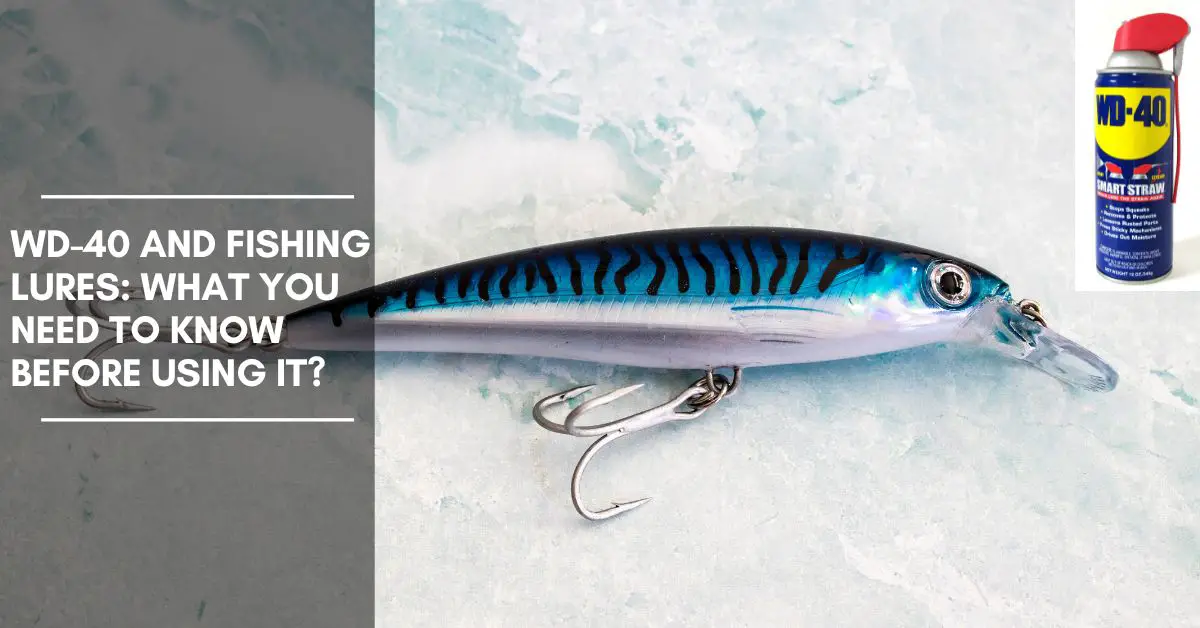Fishing enthusiasts are always on the lookout for the next big secret that can give them an edge when it comes to catching fish. One such secret that has been circulating in the fishing world for years is the use of WD-40 on fishing lures.
In this article, I will explore whether or not WD-40 is a good choice for fishing lures, its potential benefits, as well as any drawbacks you should be aware of. We’ll also discuss alternative solutions for maintaining your fishing lures in top condition.
The short answer to this question is yes, you can. However, it’s essential to understand the pros and cons before deciding if it’s right for you. In the sections below, we’ll provide in-depth information on the topic, helping you make an informed decision about whether WD-40 is the best choice for your fishing lures.
What is WD-40, and Why Use It on Fishing Lures?
Understanding WD-40
WD-40 is a popular, multi-purpose lubricant and cleaner that was initially developed for industrial use. It has since become a household name, known for its ability to remove grease, grime, and rust, as well as provide lubrication for various applications. WD-40 stands for “Water Displacement, 40th formula,” as it took 40 attempts to create the perfect product.
Benefits of Using WD-40 on Fishing Lures
Some anglers swear by using WD-40 on their fishing lures, claiming that it offers several benefits:
- Attracts fish: WD-40 is known to have a strong scent that can attract fish, particularly in murky or low-visibility water.
- Prevents rust: WD-40 can help protect your lures from rust and corrosion, prolonging their lifespan.
- Cleans lures: WD-40 can remove debris, dirt, and old scents from your lures, making them more effective in the water.
Potential Drawbacks of Using WD-40 on Fishing Lures
Is WD-40 Safe for Fish and the Environment?
There are some concerns about the environmental impact of using WD-40 on fishing lures. The primary concern is whether the chemicals in WD-40 are safe for fish and the aquatic ecosystem. While WD-40 is generally considered non-toxic, it is still a petroleum-based product, which could potentially harm fish and other aquatic life if used in large quantities.
Legal and Ethical Considerations
In some areas, using chemicals or scents to attract fish may be against local fishing regulations. It’s essential to check your local laws and adhere to ethical fishing practices.
Alternatives to WD-40 for Fishing Lures
Commercially Available Fish Attractants
There are many commercially available fish attractants on the market specifically designed to be used on fishing lures. These products are generally safe for fish and the environment, and they are legal to use in most areas.
DIY Fish Attractants
You can create your own fish attractant using natural ingredients such as garlic, anise, or even fish oil. These homemade solutions can be applied to your lures and are generally safer for fish and the environment.
Proper Lure Maintenance
To prevent rust and keep your lures in good condition, make sure to clean them after each use and store them in a dry, well-ventilated area. You can also use a light coating of silicone spray or another non-petroleum-based lubricant to protect them from corrosion.
Conclusion
In conclusion, while it is possible to use WD-40 on fishing lures, it may not be the best option due to potential environmental concerns and possible legal issues. Instead, consider using commercially available fish attractants or homemade solutions made from natural ingredients. Additionally, proper lure maintenance can help keep your lures in top condition, ensuring their effectiveness and longevity.
Now that you have a better understanding of the pros and cons of using WD-40 on fishing lures, you can make a more informed decision about whether or not it’s the right choice for your fishing needs. Remember to always follow local fishing regulations and practice ethical angling to protect our precious aquatic ecosystems.
Frequently Asked Questions
- Is WD-40 harmful to fish?
While WD-40 is generally considered non-toxic, it is a petroleum-based product, which could potentially harm fish and other aquatic life if used in large quantities. It’s better to use alternatives specifically designed for fishing lures or natural ingredients to minimize potential harm.
- Can I use WD-40 to clean my fishing lures?
Yes, WD-40 can be used to clean fishing lures, as it is effective in removing dirt, debris, and old scents. However, be cautious about using it in large quantities, as it could have negative environmental impacts.
- What are some alternatives to using WD-40 on fishing lures?
Commercially available fish attractants and homemade solutions made from natural ingredients like garlic, anise, or fish oil are great alternatives to using WD-40 on fishing lures. These options are typically safer for fish and the environment.
- Is it legal to use WD-40 as a fish attractant?
Laws regarding the use of chemicals or scents to attract fish can vary depending on the location. Always check your local fishing regulations and adhere to ethical fishing practices to ensure you are abiding by the law.
- How can I prevent rust and corrosion on my fishing lures?
To prevent rust and corrosion, clean your fishing lures after each use and store them in a dry, well-ventilated area. You can also use a light coating of silicone spray or another non-petroleum-based lubricant to protect them from corrosion.

